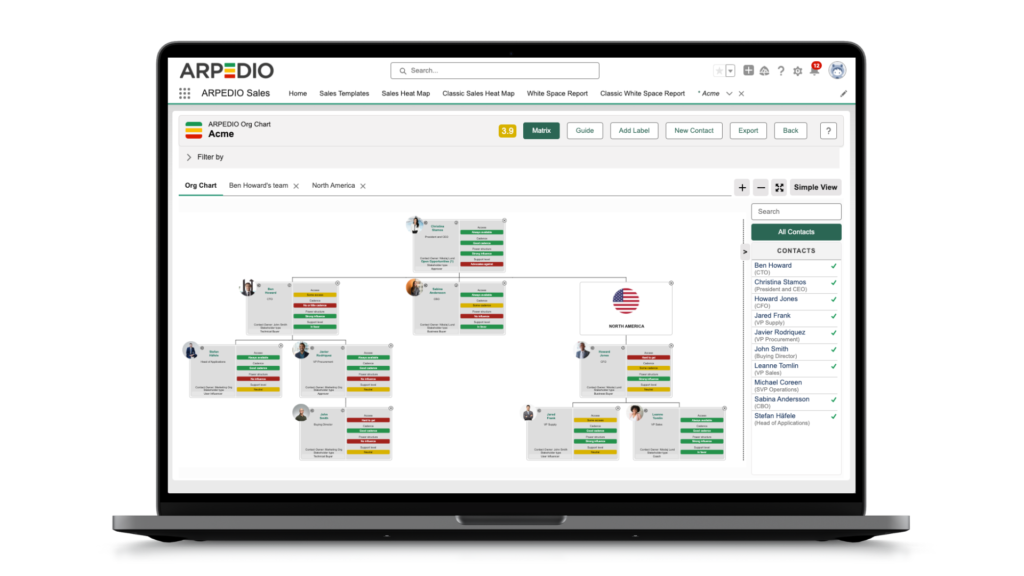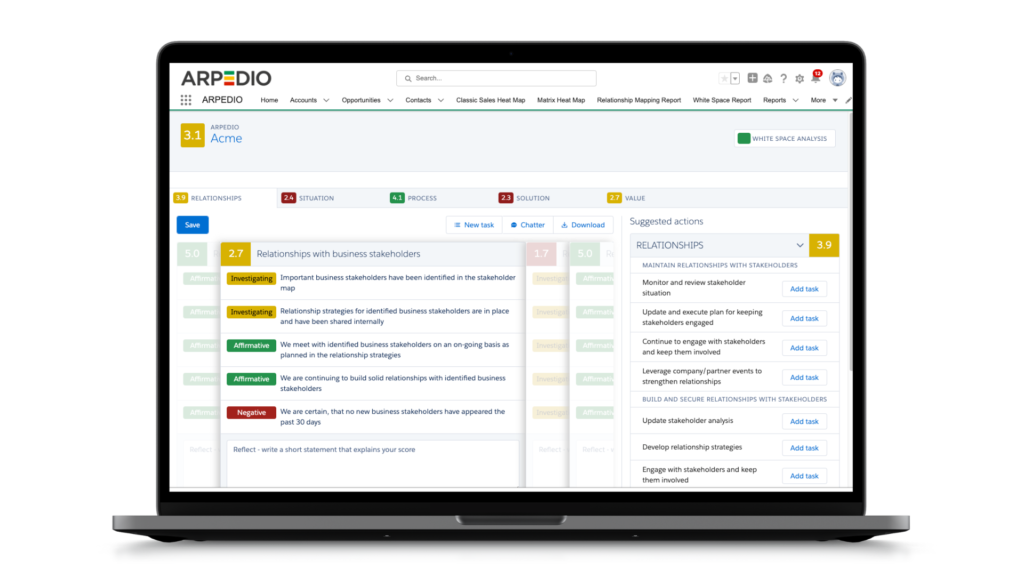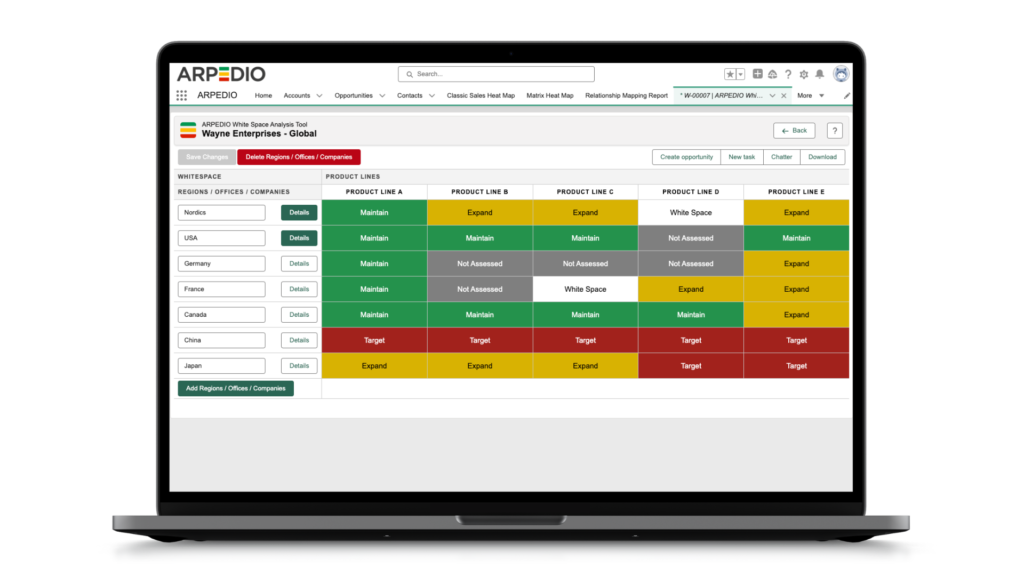A sales account plan strategy is a vital tool for achieving sales growth and building strong client relationships. It provides a clear roadmap for sales teams to follow, outlining the steps and actions necessary to reach their goals. By implementing a well-defined account plan strategy, companies can ensure they are effectively targeting their key accounts and maximizing their sales potential.
Developing and implementing an effective account plan strategy requires a deep understanding of the client’s needs and goals. It involves thorough research and analysis to identify opportunities for growth and establish meaningful connections with customers. The ultimate aim is to create a strategic approach tailored to meet the specific requirements of each individual client.
Successful account plan strategies encompass various elements such as goal setting, customer segmentation, competitive analysis, and more. These components work together to create a comprehensive plan that aligns with the company’s objectives and improves sales performance.
In the following sections, we will explore the key components of an effective account plan strategy and discuss how to create customized plans for each client. We will also delve into the practical steps involved in implementing and executing these strategies. By the end of this article, you will have a clear understanding of the importance of a well-defined sales account plan strategy in driving sales growth and fostering lasting client relationships.
The Key Components of an Effective Account Plan Strategy
An effective account plan strategy is crucial for driving sales growth and building strong client relationships. To develop a robust and successful strategy, there are several key components that need to be considered:
Goal Setting:
Setting clear and achievable goals is the foundation of an effective account plan strategy. By defining specific objectives and milestones, sales teams can align their efforts and measure their progress accurately.
Customer Segmentation:
Understanding your target audience is essential for tailoring your approach to each client. By segmenting customers based on factors such as industry, size, and buying behavior, you can create personalized strategies that address their unique needs and pain points.
Competitive Analysis:
An effective account plan strategy involves conducting a thorough analysis of the market landscape and your competitors. By identifying your strengths, weaknesses, opportunities, and threats (SWOT), you can position yourself strategically and differentiate yourself from the competition.
Relationship Management:
Building and nurturing strong relationship management is a vital component of an effective account plan strategy. By understanding your clients’ goals, challenges, and preferences, you can provide personalized support and establish trust, leading to long-term mutually beneficial partnerships.
By incorporating these key components into your account plan strategy, you can maximize your sales success and create a solid foundation for sustainable growth and client satisfaction.
The Preferred
Account-Based Selling Platform
Our platform provides visual org charts, stakeholder relationship heat maps, up-to-date account plans, recommended next-best actions, accurate weighted pipelines, and white space analysis.
-
100% Native to Salesforce
-
Methodology Agnostic
-
Advanced enough to create a real impact
-
Simple enough to secure adoption
Creating a Customized Account Plan for Each Client
When it comes to building successful client relationships, one size does not fit all. That’s why creating a customized account plan for each client is essential. A customized account plan takes into account the unique needs, goals, and preferences of the client, allowing for tailored strategies and personalized approaches to maximize success.
Gathering relevant data is the first step in creating a customized account plan. This includes understanding the client’s industry, market position, competitive landscape, and any specific challenges they may be facing. By conducting in-depth client research, sales professionals can gain valuable insights that will inform and guide their strategies.
Once the necessary data is collected, it’s crucial to analyze and understand the client’s goals and objectives. What are their short-term and long-term targets? What outcomes are they looking to achieve? By aligning the account plan strategy with the client’s goals, sales professionals can demonstrate their understanding and commitment, building trust and confidence with the client.
With a solid foundation of data and goals, it’s time to develop personalized strategies that address the unique needs of each client. This may involve tailoring the value proposition, designing targeted marketing campaigns, or creating customized solutions that cater to the client’s specific requirements.
Customized Account Planning Process
The process of creating a customized account plan for each client involves the following key steps:
- Gather Data: Collect relevant information about the client’s industry, market, and competitors.
- Conduct Research: Gain in-depth understanding of the client’s goals, challenges, and preferences.
- Analyze and Strategize: Use the gathered data and research insights to develop personalized strategies.
- Align with Goals: Ensure that the account plan is aligned with the client’s short-term and long-term objectives.
- Implement and Monitor: Put the account plan into action and regularly monitor progress to make necessary adjustments.
By following this customized account planning process, sales professionals can strengthen their client relationships and drive better results. Clients will appreciate the personalized approach that considers their unique needs and goals, leading to increased satisfaction, loyalty, and ultimately, long-term success.
Implementing and Executing the Account Plan Strategy
Once you have developed a comprehensive account plan strategy, it is time to put it into action. Implementing and executing the strategy requires careful planning and coordination across your sales team. By following the steps outlined below, you can ensure the successful implementation of your account plan strategy.
1. Communication and Collaboration
Effective communication and collaboration are essential for implementing an account plan strategy. Regularly engage with team members to share insights, align goals, and provide updates. Encourage open dialogue and foster a collaborative environment that promotes synergy and cross-functional cooperation.
2. Resource Allocation
Allocate resources strategically to support the execution of your account plan strategy. This may include assigning dedicated sales representatives, providing training and development opportunities, and investing in technology and tools to enhance productivity and efficiency.
3. Tracking Progress
Regularly track and measure the progress of your account plan strategy to ensure that you are on track to meet your goals. Utilize key performance indicators (KPIs) and metrics to evaluate the effectiveness of your strategy and identify areas for improvement.
4. Making Necessary Adjustments
Flexibility is crucial when implementing an account plan strategy. Monitor market changes, customer feedback, and competitive landscapes to identify any necessary adjustments or refinements to your strategy. Continuously adapt and evolve your approach to optimize results and address new challenges and opportunities.
By following these steps and actively implementing and executing your account plan strategy, you can maximize the potential for sales growth, strengthen client relationships, and achieve your business objectives.
Conclusion
In this article, we have explored the concept of a sales account plan strategy and highlighted its significance in achieving sales growth and building strong client relationships. A well-defined account plan strategy serves as a roadmap for success, guiding sales teams to effectively target their efforts and maximize results.
By understanding the key components of an effective account plan strategy, such as goal setting, customer segmentation, and competitive analysis, sales professionals can develop a comprehensive and tailored approach to each client. This customization enables them to address individual needs and goals, fostering trust and loyalty.
Implementing and executing an account plan strategy requires consistent communication, collaboration, and resource allocation. Regularly tracking progress and making necessary adjustments along the way ensures that sales teams stay on track and adapt to evolving market conditions.
A well-executed sales account plan strategy can yield remarkable results – from driving revenue growth to enhancing client satisfaction. It serves as a foundation for building lasting client relationships and contributes to overall sales success. By investing the time and effort into developing and implementing a robust account plan strategy, sales professionals can set themselves up for long-term success in an increasingly competitive market.
FAQ
What is a sales account plan strategy?
A sales account plan strategy is a comprehensive approach used by sales teams to achieve sales growth and foster strong client relationships. It involves creating a strategic roadmap that outlines goals, target customers, competitive analysis, and actionable steps to maximize success.
What are the key components of an effective account plan strategy?
The key components of an effective account plan strategy include goal setting, customer segmentation, competitive analysis, value proposition identification, action plans, and performance tracking. These elements work together to ensure a tailored, focused, and successful approach to sales account management.
Why is it important to create a customized account plan for each client?
Creating a customized account plan for each client is crucial because it allows sales teams to understand and address the unique needs, goals, and preferences of individual clients. By tailoring strategies and tactics to specific clients, sales professionals can build and maintain strong relationships, which ultimately lead to enhanced sales outcomes.
How do you implement and execute an account plan strategy?
Implementing and executing an account plan strategy involves effective communication and collaboration within the sales team. It also requires resource allocation, tracking progress, making necessary adjustments, and regularly reviewing performance. By following these steps, sales teams can ensure a smooth and successful execution of the account plan strategy.
What is the importance of a well-defined sales account plan strategy?
A well-defined sales account plan strategy is essential for achieving sales growth and fostering client relationships. It provides clarity, alignment, and a roadmap for sales teams, guiding their efforts towards achieving goals and effectively managing client accounts. A robust account plan strategy helps sales professionals make informed decisions, maximize their opportunities, and drive overall sales success.













